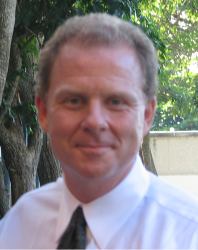- Both organizations (let’s call them A and B) planted 500,000 trees in a year.
- Planting trees was all that each of them did.
- They both spent the same amount of money in a year.
- In fact the only difference between the two was that Organization A had 900 volunteers and Organization B had 1,000 volunteers.
- 35% chose A because they felt that A “needs more volunteers”.
- 15% chose B because “it must be the better organization because it had more volunteers”.
- 10% said they could not see any difference.
- 40% chose A because it was more efficient in its deployment of volunteers.
If you fell into any of the first three bullet points above, I invite you to consider a brand new perspective in measuring the ROI of volunteer engagement.
In its most basic level, consider the wage replacement method of measuring ROI that compares the total dollars spent to the number of volunteer hours multiplied by some benchmark hourly value of volunteer time. In theory (because I know nobody would do this), if someone had 20 volunteers come in every Saturday and sit there and do nothing for three hours, their total hours for the year would go up and therefore their ROI would go up. While nobody would do this (at least not intentionally), it illustrates the flaw in this methodology. When the wage replacement model was first introduced, it filled a void where no measurement was being done and as such served its purpose. Like all professions, the volunteer sector looks for tweaks and improvements to what has been done on the past and the Scarce Resource Model as the next step in management reporting.
The second slide of my presentation reads “All the wrong people are here”. I say that because I recognize that Mangers of Volunteers are asked for wage replacement modeled reports by their boards, bosses and fund granting agencies. While teaching the Scarce Resources Model to managers of volunteers is clearly useful, those asking for reports need to reconsider what information is truly useful to them: because, as my first slide empathizes, “You always get the wrong answer when you ask the wrong question”.
Up-coming venues that include this presentation include:
May 25 - Victoria, BC Canada - Volunteer Victoria
May 31 - London, England - Volunteer Fair
June 17 - Chicago, IL USA - Summit on Advanced Volunteer Engagement
June 18 - Chicago, IL USA - National Conference on Volunteering and Service
June 21 - Chicago, IL USA - Salvation Army, Central Territory Conference
July 17 Portland OR USA - Volunteer Portland
August 9 - Chicago, IL USA - ICOVA Conference
September 11 - Ottawa ON Canada - Volunteer Ottawa
September 18 - Columbus OH USA - 2012 Annual Ohio Conference on Service and Volunteerism
September 27 - Vancouver, BC Canada - Volunteer BC Conference
October 24 - Truro NS Canada - Recreation Nova Scotia Conference
October 26 - Topeka KS USA - 2012 Kansas Conference on Service & Volunteerism
Email me at tony@volunteer2.com with your location if you would like me to let you know when I'll be presenting at a venue near you.

No comments:
Post a Comment